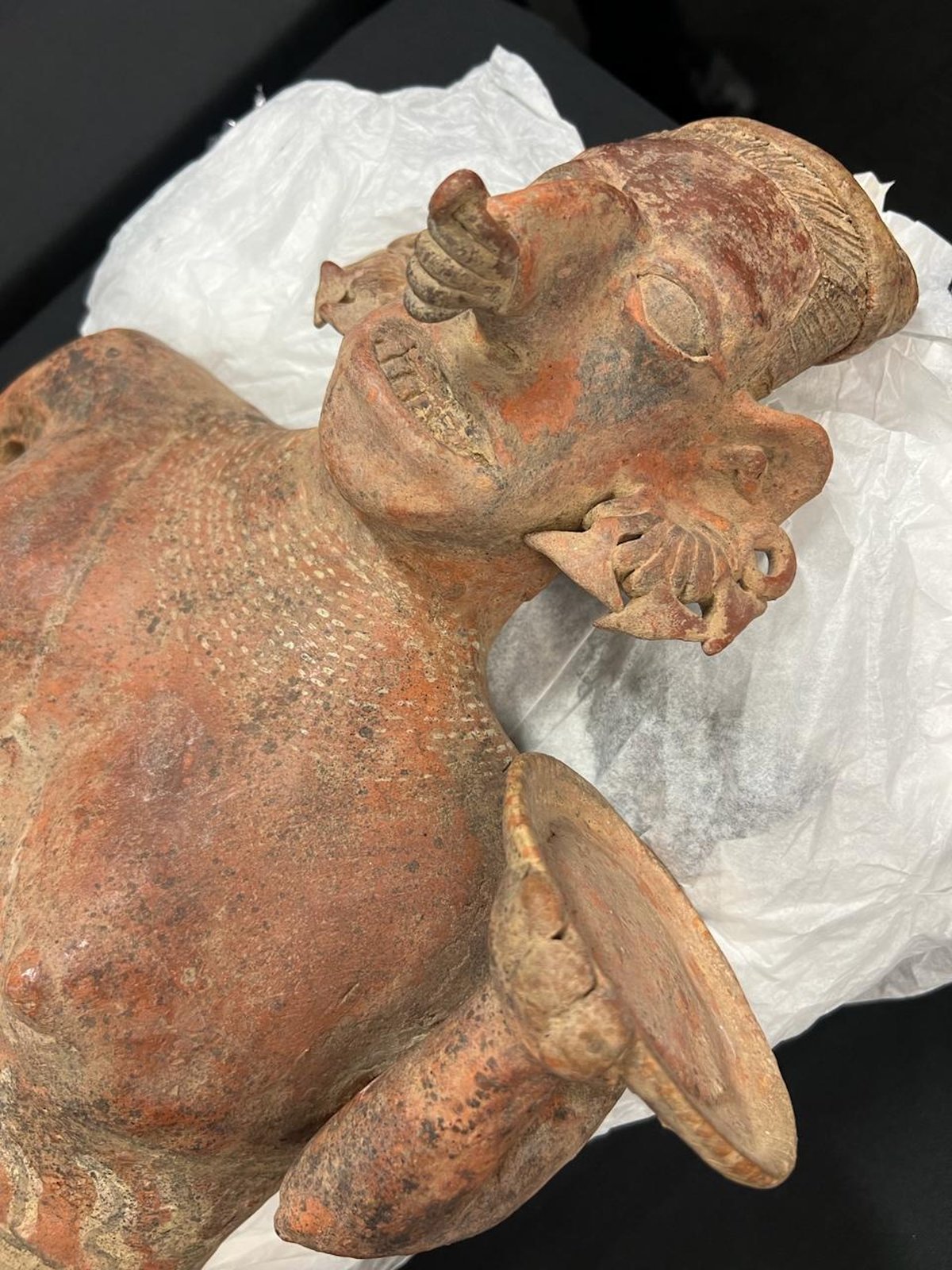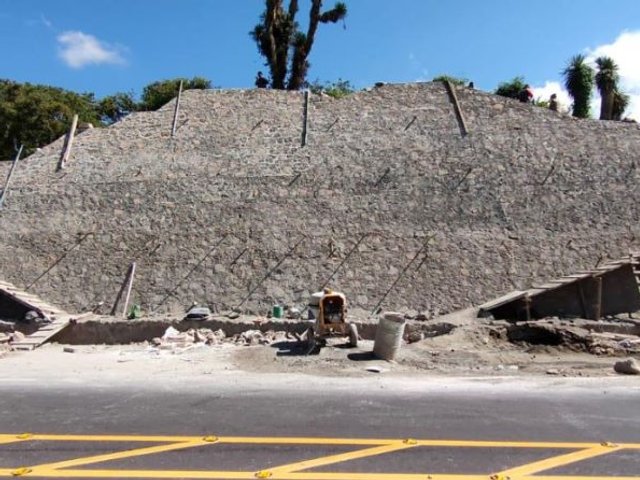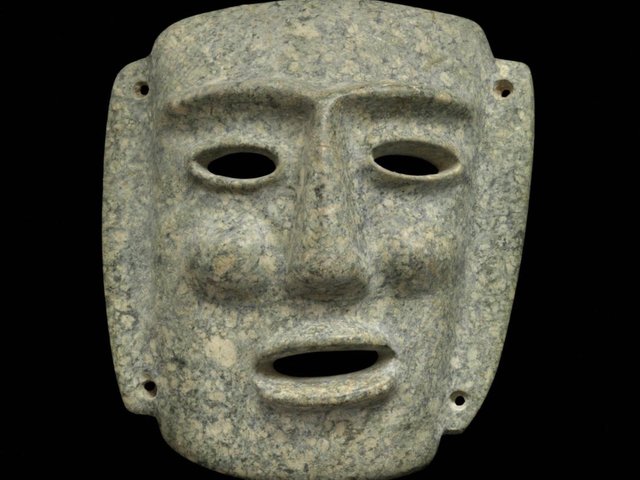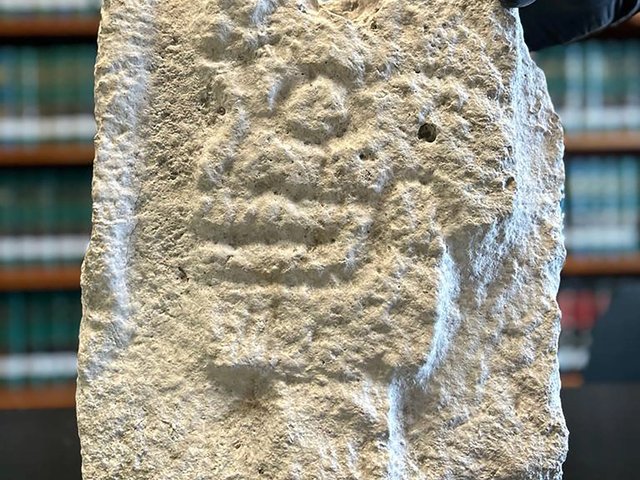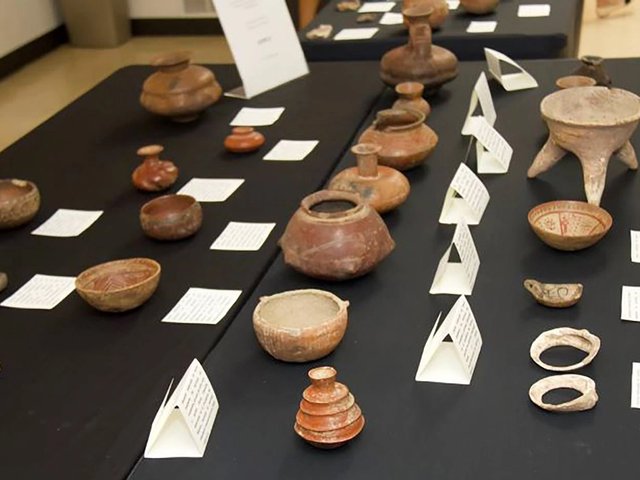Anthropomorphic ceramic figures, necklace beads, vessels and more archaeological objects were turned over to Mexican authorities, including the country’s visiting secretary of foreign affairs, Alicia Bárcena Ibarra, during a ceremony this month at Mexico’s consulate in Los Angeles. The artefacts, 30 in total, included pieces in Mayan and Mixtec styles, some dating from as early as the Classic Mesoamerican period (0CE-650CE).
“We are really calling this process by a different name: as of a couple of weeks ago, we don’t call it repatriation, we call it rematriation because they are going to return to mother earth, to their mother communities,” Ibarra said during the ceremony.
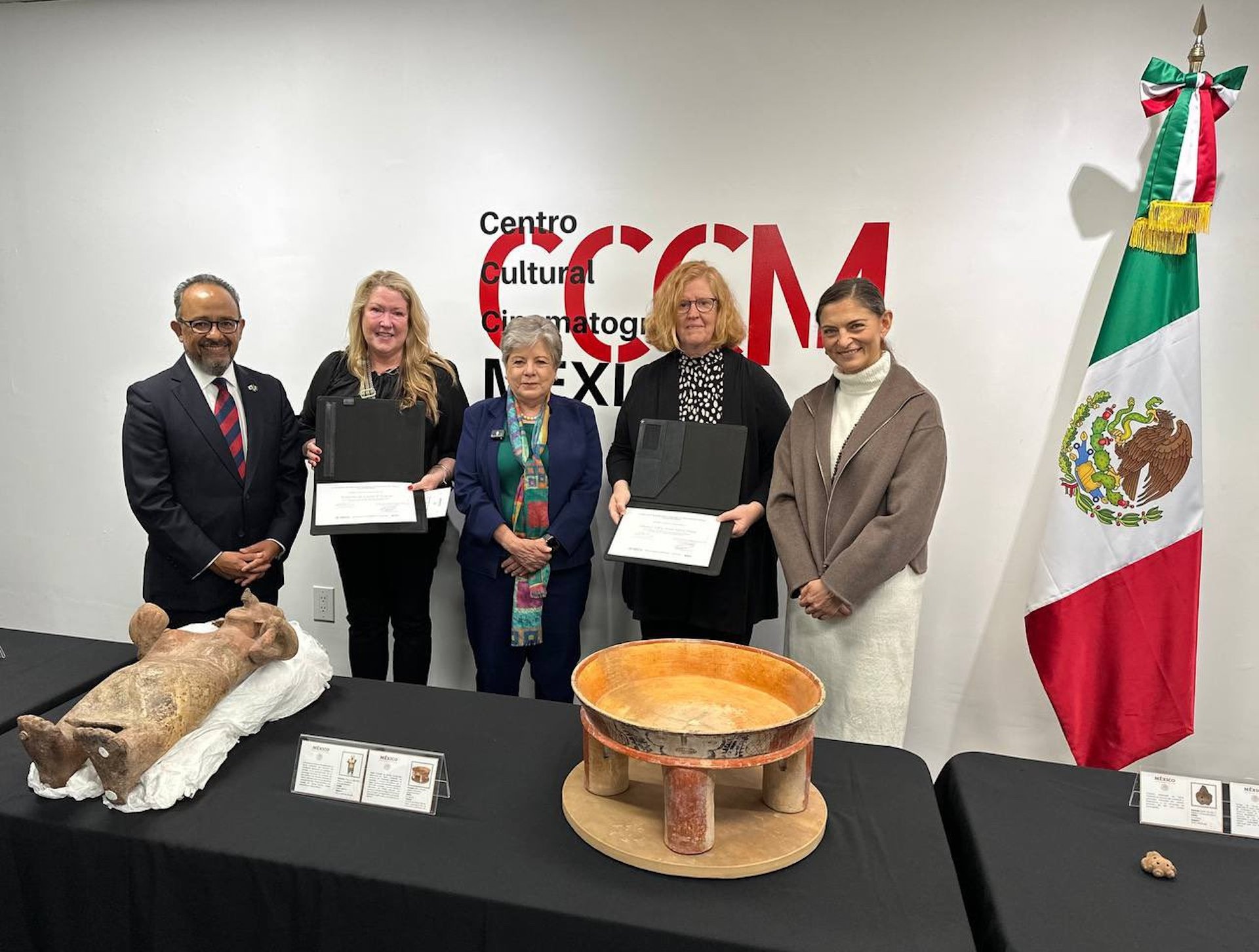
Mexico's Secretary of Foreign Affairs Alicia Bárcena Ibarra (centre) and other officials during a "rematriation" ceremony at the Mexican consulate in Los Angeles on 1 February Mexico Ministry of Culture
Analysis by Mexico’s Ministry of Culture and its National Institute of Anthropology and History (INAH) determined that the objects were of historical value to the country. How they had come into Mexican authorities’ possession—whether through seizure by law enforcement, voluntary return by public or private collectors, or some other means—was not divulged by INAH, the Ministry of Culture or the Secretary of Foreign Affairs. Mexico’s consulate in Los Angeles has been particularly active in securing the return of archaeological objects; to date, during president Andrés Manuel López Obrador’s tenure, it has secured the return of 117 archaeological objects.
The Obrador administration’s viral social media campaign #MiPatrimonioNoSeVende ("My Heritage Is Not For Sale"), launched in 2018 to advocate for the recovery of Mexico’s historical assets, has raised awareness of the subject in countries all over the world.
Last September, the San Bernardino County Museum turned over nearly 1,300 pre-Columbian artefacts to Mexico authorities. In August 2023, a Belgian citizen voluntarily returned 20 archaeological goods to Mexico, citing #MiPatriaNoSeVende as her inspiration. And in May 2023, Mexico secured the return of Chalcatzingo’s Monument 9, more popularly known as the “Portal of the Underworld”, back to its rightful home. The 2,500-year-old Olmec monument had long been a priority in the country’s repatriation efforts.


